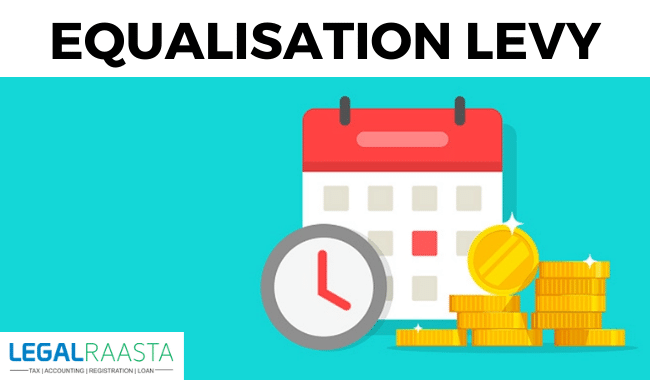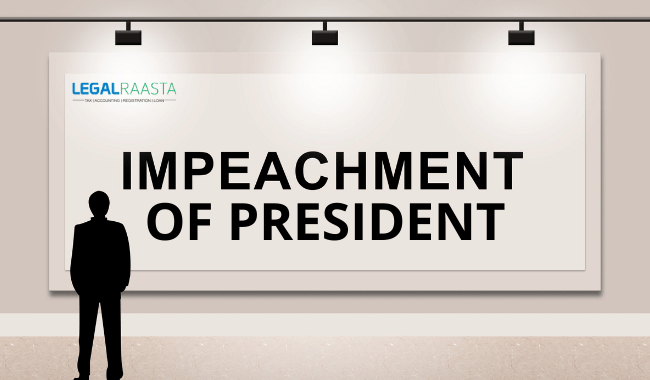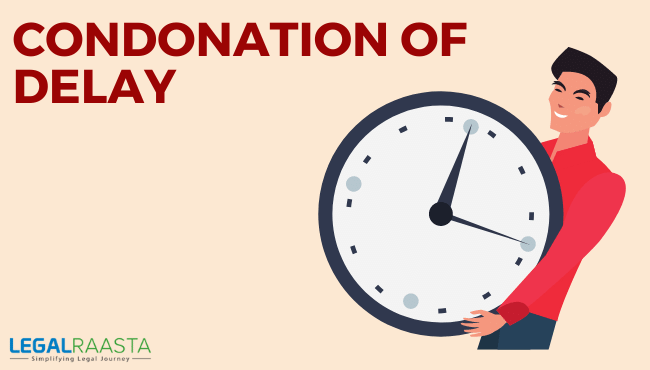Equalisation Levy
Equalisation Levy was introduced in India in 2016, with the intention of taxing the digital transactions i.e. the income accruing to foreign e-commerce companies from India. It is aimed at taxing business-to-business transactions. This levy has been imposed only on companies whose revenue exceeds Rs 1 crore per year and will be charged at 6% on every interstate supply made by these businesses via electronic platforms like Google Play, Apple Store, Windows app store, etc. A total of 100 such companies are likely to come under this tax net out of which 31 have already been identified who have not registered themselves for this purpose so far. The Income Tax department has sent emails to all such entities asking them to register before providing any taxable service henceforth. A penalty of 10% (of the amount collected) will be imposed for not complying with this notification. This levy is expected to fetch around Rs 100 crore to the exchequer in the remaining months of this fiscal year.
An equalization levy was introduced in India to tax digital transactions. This levy is charged for business-to-business transactions. The central government through a notification dated 30th October 2016, imposed Equalization Levy on “E-commerce B2B” transactions effected outside India by non-resident having a place of business or carrying on business or profession within India.
The e-commerce B2B transactions include any supply of goods or services or both by a non-resident to another non-resident and include inward supplies from an unregistered supplier and outward supplies to an unregistered recipient. The definition of e-commerce refers only to the electronic mode i.e., internet/ broadband/ optic fiber cable networks, etc., and not to the general digital environment.
What all services/ goods are covered under Equalisation Levy?
This includes any sale for which money changes hands, including media space trading, display ads, website purchases, or any other type of digital advertising.
How is it levied?
It’s a simple process where the advertiser will have to pay this levy upfront to the Indian government. The overseas e-commerce company will not be dealing with the tax part at all. Having said that, they may or may not pass on this additional charge to you, but ultimately it would be your responsibility as an advertiser to find out and take care of it.
Background of Equalisation Levy
Equalisation Levy was introduced by the Indian Government with the aim of taxing businesses that carry out digitally trading activities (i.e. revenue collected from India via any means like Google play, Apple App Stores etc). Applicable only to companies whose revenue exceeds Rs 1 crore per year, and they would have to charge tax at 6% on an interstate supply made by these businesses through e-commerce platforms
The equalization levy is being imposed on the foreign e-commerce companies that are selling their products in India. This has been done to bring parity with the Indian marketplaces that are selling abroad. Earlier, this levy was applicable only when a company had more than 20 lakhs rupees in sales in India. But the recent budget decided to lower this limit down to 10 lakhs rupees.
The idea, which India introduced in 2016 with the intention of taxing the digital transactions i.e. the income accruing to foreign e-commerce companies from India, is aimed at validating earlier complaints made by domestic online retailers such as Flipkart and Snapdeal that their foreign counterparts were profiting from an unfair edge due to a lack of regulation on internet-based marketplaces.
Equalisation Levy is an ad valorem tax for foreign e-commerce companies based on the annual value of digital transactions. This means that it is levied as a percentage of Gross Merchandise Value (GMV) i.e., the total cost of products sold and delivered within or outside India through online marketplaces like Amazon and eBay through their Indian subsidiaries or arms.
How does Equalisation Levy function?
As per Section 9(4) of the Finance Act 2016: “There shall be charged for each financial year commencing on or after 01st April 2017, a tax (hereafter referred to as Equalisation Levy) equal to six percent of the value of total online advertisement revenue payable to non-resident service providers, thereby making the levy applicable only on companies that are registered outside India.”
The Department of Revenue had laid down in an explanatory memorandum that: “it would be appropriate to levy such taxes only on B2B transactions and not on transactions involving the sale by consumers. As such, unlike in the case of similar tax provisions, there is no provision for recovery or collection from individual customers.”
However, it can be noted that although this e-commerce tax has been imposed since April 1, 2017, and also affects foreign e-commerce firms like Alibaba and Amazon along with homegrown ones Flipkart and Snapdeal; it has received a significant amount of backlash from American giants. There are complaints that it is unconstitutional, discriminatory, and aimed at protecting domestic players.
The services provided by foreign e-commerce companies after June 1st, 2016 will now be taxed as per Indian laws. The Indian government believes that these e-commerce companies have been avoiding taxes that are payable on their income. In order to avoid this payment, they have been setting up offices in the country and trying to sell their products directly. Now with these new rules applicable, the online companies will not be able to escape paying tax for what they earn from India. Foreign e-commerce companies who are also registered in India under the Companies Act, will be liable to pay tax at 6% of their turnover. The companies not registered in India under the Companies Act, but have been issued a valid certificate to run business in India by the Government, will be taxed at 9%. This will not only lead to an increase in bitcoin price but also provide impetus to Indian e-commerce companies who fear that these foreign e-commerce players would wipe out competition with their large capital and economies of scale.
Effect on the Indian Economy
The imposition of the Equalisation Levy has been hailed as a way to level the playing field for domestic e-commerce players. While there have been cases of regulation-abuse by foreign e-commerce companies, critics believe that this move might work against India’s interests in the long run i.e., loss of Foreign Direct Investment (FDI).
It is argued that those who also provide platforms for digital advertising such as Google or those offering cloud services such as AWS could be significantly affected by Equalisation Levy as it falls under “Online Advertisement”. However, some experts feel that levy would not affect all companies equally, even though it does increase the cost of operations.
“The Equalisation Levy would also mean that foreign e-commerce players may transfer some lower value items which attract Equalisation Levy to other group companies outside India who are not liable for this levy, so there is an opportunity loss”, adds Eric Smith.
Effect on Foreign Companies i.e., American Tech Giants
American tech giants have already raised their voices against this levy stating that it violates international treaties and anti-discrimination norms. However, the government claims that it has no basis in bilateral agreements with America or any basis in law at present.” Any trade agreement will be done only after Parliament gives its approval”, said Commerce Minister Nirmala Sitharaman when questioned about the violation of India-US Trade Policy.
American tech companies have already voiced their concerns regarding this tax through official statements and media coverage. There are also speculations of them taking up the issue with Mark Zuckerberg if they feel that Facebook too will be affected by this tax.
Effect on Indian E-commerce Market
The Equalisation Levy is expected to affect marketplaces such as Flipkart and Snapdeal more than homegrown e-commerce companies such as Amazon. This is due to the fact that most of the current complaints against foreign players are only leveled by them while some had been turned down in favor of homegrown companies like Aditya Birla Group’s Idea Cellular and Vodafone India (which faced an Rs. 3,500 crore tax demand from Indian government).
These rising tensions between India and American tech giants may force them to go for innovation in their product frameworks rather than seeking help from outside sources. This would also mean that they will not be able to compete with local startups which had been the focal point of their product framework.
However, this levy is also expected to affect other platforms which are involved in online advertisement such as Google and Facebook would also be significantly affected by Equalisation Levy. This may further escalate the tension between India and American tech companies. For this reason, Eric Smith suggests that the Indian Government should work with these companies to come up with an amicable solution.
The main reasons for this act are that foreign e-commerce companies were not paying taxes on the income they earned. It was also feared that these companies could end up dominating the Indian market like Alibaba did in China, eBay in Russia, and Rakuten in Japan. The government feels that local players should be given the same opportunity as international online shopping sites in order to compete in a fairway. This will also help boost revenue collections in a country where tax evasion is a big headache for government officials.
It is important to note here that this levy is only applicable on business-to-business transactions and not business to customer ones. This would mean that any transaction made from an Indian seller’s website or app to another Indian buyer would be exempted. :
Equalisation Levy has already been imposed though it is yet to yield any fruitful results for the government exchequer. It will be interesting to see how this levy unfolds in the future considering the already tense relations between India, American tech companies and their impact on global e-commerce markets.
The Goods and Services Tax (GST) Council has approved the principle of imposing an ‘equalization levy’ on cross-border digital transactions, a move aimed to ensure that all goods and services are taxed at the same rate whether it is domestically produced or sourced from outside.
This will be part of a slew of measures decided by the council to prevent multinational companies from trying to evade taxes in their home markets through transfer pricing – a practice where the intra-group supply of goods and services takes place at prices that do not reflect those prevailing in the open market.
The equalization levy is expected to bring into tax revenues those firms which route transactions through low-tax or zero-tax countries such as Singapore, Mauritius or Cyprus to reduce their global tax liability.
Conclusion
An equalization levy is introduced with the intention of taxing digital transactions i.e. the income accruing to foreign e-commerce companies from India. It is aimed at taxing business-to-business transactions.
This new levy has been brought in to provide a level playing field for domestic players while they compete against foreign companies in the country. It will help streamline taxes across sectors while tackling double taxation of digital commerce.
The Indian government had earlier notified that it would be imposing this tax but did not specify when it would go into effect. However, there are provisions to exempt certain small value transactions from the levy.
This new tax has been met with a lot of displeasure from foreign companies operating in India who feel that it will only create an unfair playing field for them since they already pay taxes in their home countries too . To quell these fears, the government has stated that if a business is registered and paying taxes in another country, then no E-commerce Levy needs to be paid. Also, small value transactions of less than 500 rupees have been exempted from this rule. For such purchases, no payment is required under this levy. The proceeds from the levy will go to the Consolidated Fund of India and would be utilized for welfare schemes.
Since there is no law dealing with either setting up of a subsidiary or payment of taxes on digital transactions done within India, e-Commerce companies could use this loophole to offer suppliers services without any hassle. With the imposition of an equalization levy, however, this would not be possible as they would be taxed heavily if they do not utilize money received in India.
Related Posts:
IceGate: e-Commerce Portal of Central Board of Excise and Customs
Registration and Licenses Required for Starting an E-commerce Business








